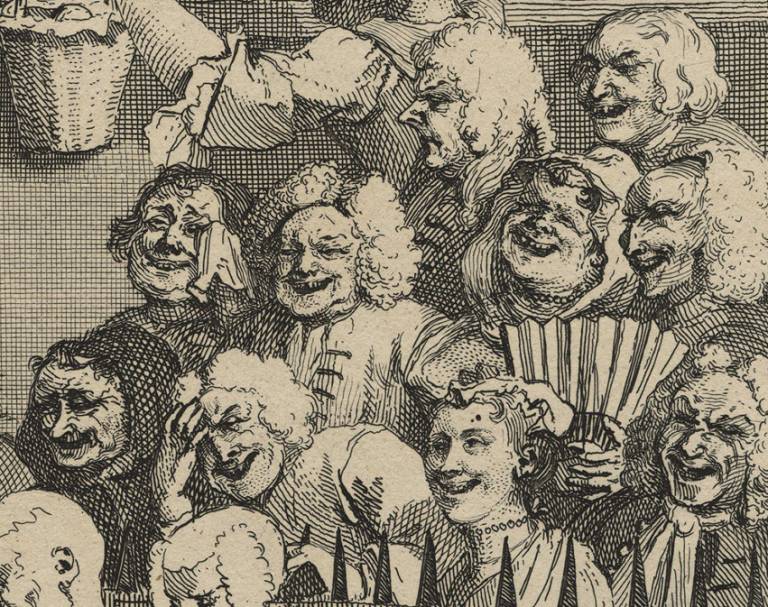Led Dr Alice Rudge and Dr Andrew Dean.

This theme was open to the widest possible interpretation to address the concerns of many disciplines and departments while providing a frame for thinking across or even bypassing entrenched or established modes of thinking. It could include the following concerns:
- External expressions of merriment/amusement: its corporeal/cognitive dimensions
- The politics of laughter: irreverence, mockery, ridicule, revenge, revolutionary mirth/glee
- The aesthetics/poetics of laughter: satire, wit, comic forms, caricature and comedic creations
- The performance/production of laughter: stand up, clowning, mimicry, jokers and fools
- Technologies of laughter: canned, recorded, packaged, produced, pre-planned
- Laughter on line: happy emojis, lol, hahaha, mediations and manipulations of laughing in social networks and new media
- Laughter and feeling: reparation, catharsis, release, empathy
- Dark laughter: last laughs, gallows humour, hysteria, contagion, forced funniness, humiliation, hyperbolic horror
- Weaponised laughter: cruel jokes, taking the piss, winding some-one up, bullies and buffoons
- Defensive laughter: anxiety, embarrassment, fear, unease
- Representation/narration of laughter: infectious, unfunny, unpleasant, inappropriate, palliative
- The laughing body: incontinence, unruliness, excess, falling about, unravelling, porous, seeping
Image: The Laughing Audience (or A Pleased Audience), by William Hogarth (died 1764)
 Close
Close

